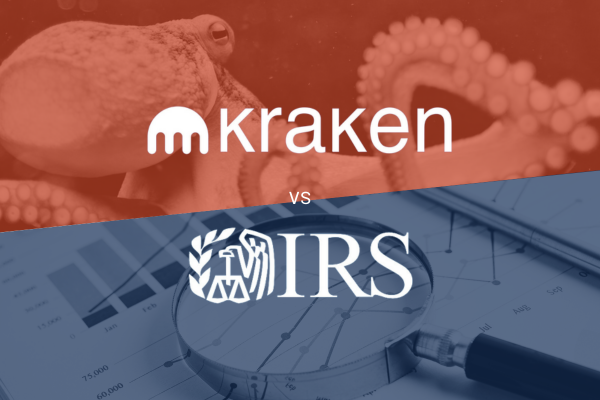Kraken, a popular cryptocurrency exchange, will share data with the IRS regarding the identities and transaction histories of approximately 42,000 users beginning in November 2023. Affected users should prepare for IRS scrutiny and potential tax audits.
The IRS initially subpoenaed Kraken more than 2 years ago, in the spring of 2021, resulting in a drawn out legal battle. Now, Kraken is finally giving in. The exchange will hand over the records of users who conducted at least $20,000 worth of transactions on the platform between 2016 and 2020.
Who is affected by this decision?
Anyone who transacted $20,000 worth of crypto or more on Kraken from 2016 to 2020 may have their records handed to the IRS under this court order.
The threshold is not based on how much users earned, but how much they transacted on the platform. Purchasing crypto with fiat, cashing out crypto for fiat, and exchanging various cryptos all count toward the $20,000 total. Because of this, Kraken users may find themselves under scrutiny even if they had minimal gains or a net loss on their trades.
Kraken users who have not reported cryptocurrency on their tax returns, or who haven’t reported it fully, should work to correct those mistakes ASAP.
What will happen to Kraken users identified by the IRS?
While the IRS has not released its plans, we can guess what will happen next based on the drama that unfolded when cryptocurrency exchange Coinbase was forced to hand over records on more than 14,000 users in 2017. To put it simply: Affected Kraken users should prepare for a cryptocurrency audit.
First, the IRS sent a batch of warning letters with various levels of severity. IRS letters 6173, 6174, and 6174-A were sent to taxpayers who the IRS suspected had unreported cryptocurrency activity, based on the Coinbase records.
The letters outlined crypto tax requirements and encouraged recipients to go back and properly report. Some letters gave vague warnings of IRS “follow ups” (aka an audit or investigation), while others specifically required a response.
Next, the IRS began sending CP2000 notices to crypto investors. Unlike warning letters, CP2000 notices contain an actual amount that the IRS believes the taxpayer owes.
In the case of Coinbase, the records obtained by the IRS gave a very incomplete picture of users’ tax liability. Many of our clients received outrageously high tax bills based on this inaccurate information; the video below illustrates a common example.
Hopefully, Kraken will take that lesson to heart and provide better records so its users won’t face the same problems; however, Kraken users should be prepared for a similar situation.
If you’re worried about IRS issues in the wake of this development with Kraken, we highly recommend taking action to correct your past tax returns now, rather than waiting for the IRS to come after you. Call our experienced crypto accountants to learn how we can help!
How is this different from Kraken’s annual tax forms?
Kraken currently sends Form 1099-MISC to some users each year. This form reports certain types of ordinary income—including staking rewards, referral rewards, and interest—exceeding $600.
The records that the IRS will now receive for eligible Kraken users is expected to be much more complete, encompassing full transaction histories as well as identifying information.
Need help with crypto tax returns?
Gordon Law Group is a leading crypto tax law firm—we’ve been doing this since 2014! Our team can prepare your full tax return, including cryptocurrency reports, or go back and amend old returns. Contact us to schedule a confidential consultation!




